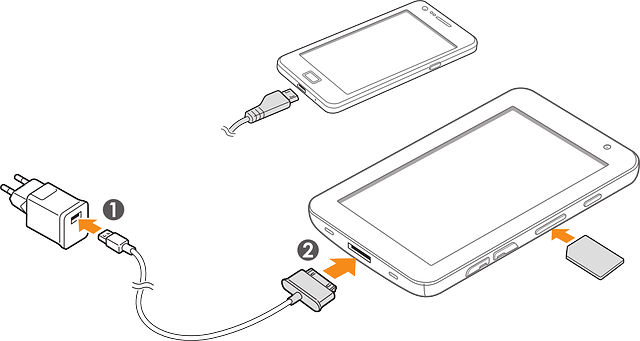The South Carolina Consumer Protection Code is a powerful legal tool safeguarding consumer rights, especially in debt collection. This code dictates that debt collectors must adhere to strict rules regarding contact frequency, information disclosure, and overall treatment of consumers. It empowers both parties with specific rights: consumers can dispute debts and expect validation from collectors while collectors must follow fair practices to avoid legal repercussions. The legislation bans harassment, deceptive tactics, and misuse of language, ensuring a transparent and respectful debt recovery process in South Carolina. Consumers who feel their rights have been violated can reach out to regulatory bodies or seek legal advice.
“Unraveling the intricacies of consumer protection in South Carolina, this comprehensive guide delves into the state’s Consumer Protection Code. Understanding these laws is crucial for both consumers and debt collectors alike. We explore key aspects, from the legal standing of debt collectors to the protections afforded to consumers in debt collection practices. This article breaks down essential provisions, empowering you with knowledge to enforce your rights under South Carolina’s debt collector laws.”
Understanding the South Carolina Consumer Protection Code

The South Carolina Consumer Protection Code is a comprehensive legal framework designed to safeguard the rights of consumers within the state. This code outlines various provisions and regulations aimed at fostering fair business practices, particularly when it comes to debt collection. Understanding this code is crucial for both consumers and debt collectors alike as it sets clear guidelines on how debts should be collected and what protections are available to individuals.
In South Carolina, debt collectors must adhere to specific laws and regulations, ensuring that their methods are ethical and transparent. The code addresses issues such as the timing and frequency of contact, the disclosure of information, and the overall treatment of consumers during the debt collection process. By knowing their rights under this legislation, consumers can better navigate interactions with debt collectors, while debt collectors can avoid legal repercussions by complying with the set standards, ensuring a fair and respectful approach to debt recovery.
Debt Collectors and Their Legal Standing in South Carolina

In South Carolina, debt collectors operate within a legal framework outlined by the state’s Consumer Protection Code. These regulations are designed to safeguard consumers from unfair or deceptive practices when dealing with debt collection agencies. According to the South Carolina debt collector laws, collectors must adhere to strict rules regarding the frequency and manner in which they contact debtors, ensuring reasonable hours and avoiding persistent harassment.
Debt collectors in South Carolina must also provide validation of the debt upon request, demonstrating their legal standing and the authenticity of the claim. Consumers have rights under these laws, including the ability to dispute the debt and request verification. This balance between consumer protection and the collector’s right to recover debts ensures a fair process for both parties, fostering transparency in the collection practice.
Protections for Consumers in Debt Collection Practices

In South Carolina, consumers are protected from unfair or abusive debt collection practices by the state’s Consumer Protection Code and related laws. These regulations govern how debt collectors can interact with individuals who owe money, ensuring that the process is fair and respectful. According to these laws, debt collectors must provide validation of the debt they are attempting to collect, refrain from using deceptive or misleading tactics, and adhere to strict rules regarding communication methods and frequency.
Consumers have the right to dispute the validity or amount of a debt, and debt collectors must respond appropriately. They should also be aware of the limitations on when and how often they can contact them. These protections aim to safeguard South Carolina residents from harassment, coercion, or intimidation during the debt collection process, ensuring that their rights are respected throughout interactions with debt collectors.
Key Provisions of the Code Regarding Debt Collectors

The South Carolina Consumer Protection Code includes several key provisions specifically targeting debt collectors, aiming to safeguard consumers from unfair and abusive practices. One of the crucial sections addresses the conduct of debt collectors, setting boundaries on their interactions with debtors. According to the code, debt collectors are prohibited from using threatening or coercive language, misrepresenting the amount owed, or employing deceptive tactics to extract payments. They must provide clear and accurate information about the debt and adhere to fair collection procedures.
Additionally, the Code ensures that debt collectors respect consumers’ privacy by obtaining proper authorization before contacting individuals at their places of employment or using persistent and aggressive methods that could cause emotional distress. These regulations are designed to empower South Carolina residents, ensuring they are treated fairly during the debt collection process. The strict adherence to these debt collector laws is vital in maintaining a harmonious balance between collecting debts and protecting consumers’ rights.
Enforcing Your Rights Under the South Carolina Consumer Protection Code

When a consumer believes their rights under the South Carolina Consumer Protection Code have been violated, they can take steps to enforce those rights. This may involve contacting the appropriate regulatory agencies, such as the South Carolina Attorney General’s Office, which is responsible for enforcing the state’s consumer protection laws. Consumers can also file a complaint with these agencies or seek legal counsel to help navigate the process.
If you’re facing debt collection issues, understanding your rights under the debt collector laws in South Carolina is crucial. The code prohibits unfair or deceptive practices by debt collectors, including harassment, false representations, and excessive fees. If a debt collector violates these laws, consumers have the right to take action, such as disputing the debt, requesting validation of the debt, or seeking damages for any harm incurred.






